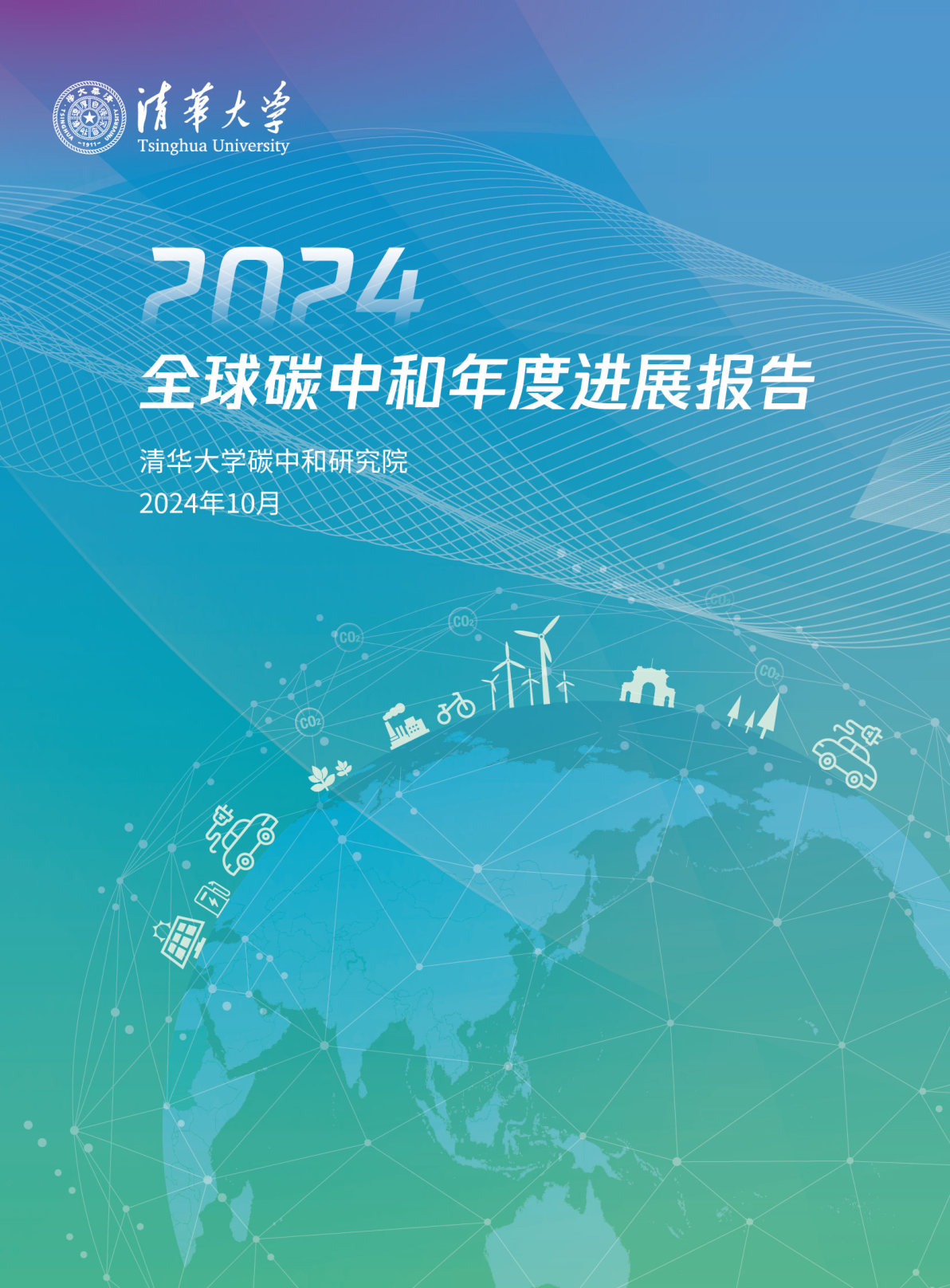
On October 17, 2024, the 2024 Global Carbon Neutrality Annual Progress Report, which was led and compiled by Tsinghua University's Institute for Carbon Neutrality and School of Environment, was released in Beijing.
As of May 2024, 148 countries around the world had made explicit commitments on carbon neutrality. All 198 parties to the United Nations Framework Convention on Climate Change had implemented laws relevant to addressing climate change. The first-ever global stocktake under the Paris Agreement in 2023 called for tripling the global installed capacity of renewable energy by 2030.
This report, is the first annual update of the “Global Carbon Neutrality Annual Progress Report”, aimed at tracking the latest progresses in the field of global carbon neutrality. The report consolidated statistical and textual data from various sources, including international organizations, industry and regional statistical yearbooks, industry reports, government websites, patent databases, research databases, and databases from multilateral institutions, and constructed a database comprising 17 primary indicators, 55 secondary indicators, and 170 tertiary indicators across four dimensions: target, technology, finance, and international cooperation, to comprehensively and systematically track the progress of carbon neutrality actions in each country. The database could be available on the website once annual reports are published. The project team also welcomes relevant organizations or individuals to actively participate in the development of the databases, jointly contributing to public, transparent and consistent tracking of carbon neutrality actions. Based on data collection, this report conducted a series of model-based in-depth analyses on the execution gap between global carbon neutrality goals and actual outcomes, and a special section focused on renewable energy.
This report continues the “Target-Policy-Action-Outcome” indicator system in accordance with last year, updating the indicator database through model assessments, data mining and updates, and specialized evaluations. It systematically tracks the latest progress in carbon neutrality across countries, identifies execution gaps between carbon neutrality targets and emission reduction outcomes, analyzes the opportunities and challenges faced by different countries, and offers policy recommendations to accelerate global climate governance and to achieve just transitions and sustainable development.
More information about the report can be accessed or downloaded through https://www.cntracker.tsinghua.edu.cn.
 Latest recommendations
Latest recommendations


